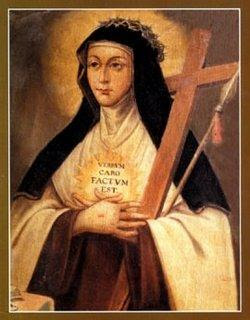St. Nicholas von Flüe
Hermit and Swiss political figure. Born near Sachseln, Canton Obwalden, Switzerland, he took his name from the Flueli river which flowed near his birthplace. The son of a peasant couple, he married and had ten children by his wife, Dorothea Wissling, and fought heroically in the forces of the canton against Zurich in 1439. After serving as magistrate and highly respected councilor, he refused the office of governor several times and, in 1467, at the age of fifty and with the consent of his wife and family, he embraced the life of a hermit, giving up all thought of political activity. Nicholas took up residence in a small cell at Ranft, supposedly surviving for his final nineteen years entirely without food except for the Holy Eucharist. Renowned for his holiness and wisdom, he was regularly visited by civic leaders, powerful personages, and simple men and women with a variety of needs. Through Nicholas’ labors, he helped bring about the inclusion of Fribourg and Soleure in the Swiss Confederation in 1481, thus preventing the eruption of a potentially bloody civil war. One of the most famous religious figures in Swiss history, he was known affectionately as “Bruder Klaus,” and was much venerated in Switzerland.


